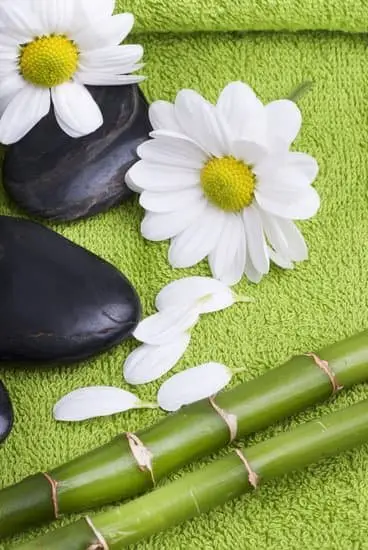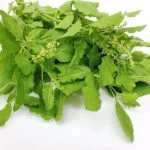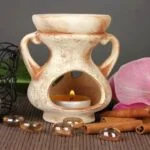Aromatherapy is a rapidly growing industry that focuses on the use of essential oils and natural fragrances to promote relaxation, improve moods, and enhance overall wellbeing. This article will provide an in-depth exploration of the aromatherapy business, covering everything from the basics of aromatherapy to starting your own business in this field.
In the first section, “Introduction: What is Aromatherapy?”, we will delve into the fundamentals of aromatherapy and its benefits. You will gain an understanding of how different scents can affect our emotions and physical health, and how essential oils are extracted and used in various applications. We will also explore the history of aromatherapy, dating back thousands of years to ancient civilizations.
The aroma industry has experienced significant growth in recent years, with more people seeking holistic remedies and natural alternatives to traditional medicine. The second section, “The Growing Trend of Aromatherapy: Exploring the Market Demand”, will delve into this rising trend and examine the market demand for aromatherapy products. We will analyze key factors contributing to the increased popularity and discuss the potential for success in this booming industry.
Whether you are looking to start your own aromatherapy business or already have one established, it is crucial to understand key considerations for success. The third section, “Starting an Aromatherapy Business: Key Considerations and Steps to Success”, provides a comprehensive guide on how to set up your own business in this field. We will discuss legal requirements, product sourcing, branding strategies, and much more.
Continue reading as we unravel everything you need to know about embarking on a rewarding journey in the world of aromatherapy business.
The Growing Trend of Aromatherapy
Aromatherapy has seen a significant rise in popularity and demand in recent years. This section will explore the market demand for aromatherapy and how it is contributing to the growth of the industry.
The use of essential oils for therapeutic purposes has been practiced for centuries, but it is now experiencing a renaissance in contemporary society. With more people seeking natural and holistic approaches to health and well-being, aromatherapy has become a go-to option for relaxation, stress relief, and overall wellness.
One of the main factors driving the growing trend of aromatherapy is the increasing interest in alternative medicine and complementary therapies. Many individuals are looking for alternatives to traditional medicine that focus on promoting balance and healing in a natural way. Aromatherapy offers a non-invasive approach that aligns with this desire for holistic practices.
In addition, the fast-paced and stress-filled nature of modern life has resulted in an increasing number of individuals turning to aromatherapy as a means to unwind and find tranquility. Aromatherapy is known for its ability to promote relaxation, reduce anxiety, improve sleep quality, and enhance overall mood. As people prioritize self-care and mental well-being, they are finding solace in the calming effects of essential oils.
Moreover, there has been significant research conducted on the therapeutic benefits of essential oils, further fueling the market demand for aromatherapy products. Studies have shown that certain essential oils have antimicrobial properties, can help alleviate pain and inflammation, enhance cognitive function, boost immunity, and even aid in digestion. The scientific evidence supporting these benefits has bolstered consumer confidence in aromatherapy as an effective form of alternative medicine.
As consumer awareness continues to grow regarding the potential benefits of aromatherapy, it opens up vast opportunities for entrepreneurs looking to start an aromatherapy business. By catering to the rising demand for high-quality essential oils and related products, aspiring entrepreneurs can tap into this growing market and build successful ventures.
| Market Demand Factors | Impact |
|---|---|
| Increasing interest in alternative medicine and complementary therapies | High |
| Desire for holistic practices and natural approaches to health and wellness | High |
| Need for relaxation and stress relief in a fast-paced society | High |
| Growing scientific evidence supporting the therapeutic benefits of essential oils | High |
Starting an Aromatherapy Business
When starting an aromatherapy business, there are a few key considerations and steps that can help set you up for success. Here are some important factors to keep in mind:
- Research and Education: Before diving into the aromatherapy business, it is crucial to gain a solid understanding of essential oils, their properties, benefits, and uses. Take the time to research different oils and their therapeutic effects, as well as any safety precautions or contraindications associated with their use. Consider enrolling in aromatherapy courses or obtaining certifications to enhance your knowledge and credibility in the field.
- Define Your Target Market: Determine who your ideal customers will be by identifying the specific needs and preferences of your target market. Are you targeting individuals looking for relaxation and stress relief? Or perhaps athletes seeking natural remedies for muscle recovery? Understanding the demographics and psychographics of your target audience will help inform your marketing strategies and product offerings.
- Develop a Business Plan: A well-thought-out business plan is crucial for any successful venture. Outline your vision, mission statement, goals, and objectives for your aromatherapy business. Include details about your products, pricing strategy, distribution channels, marketing tactics, financial projections, and contingency plans. This comprehensive plan will serve as a roadmap to guide you through each stage of business development.
To ensure a smooth start to your aromatherapy business journey, consider following these steps:
- Register Your Business: Choose a unique name that reflects your brand identity and check its availability for registration with the appropriate authorities.
- Obtain Necessary Licenses and Permits: Research the regulatory requirements in your jurisdiction related to selling essential oils or running a holistic health business.
- Find Reliable Suppliers: Establish relationships with reputable suppliers or growers who provide high-quality essential oils. Ensure they adhere to sustainable sourcing practices.
- Create a Product Line: Develop a range of aromatherapy products based on your target market’s needs and preferences. This can include essential oil blends, massage oils, bath salts, candles, or diffusers.
- Set Up an Online Presence: In today’s digital age, having a strong online presence is essential for any business. Create a professional website and leverage social media platforms to promote your brand and products.
By carefully considering these key factors and following the necessary steps, you can lay a solid foundation for your aromatherapy business. Remember to stay passionate about aromatherapy and continuously educate yourself on industry trends and customer demands to ensure ongoing success.
Choosing the Right Essential Oils
Understanding Quality
When it comes to choosing essential oils for your aromatherapy business, understanding quality is of utmost importance. High-quality essential oils not only ensure that your products are effective and safe, but they also enhance the reputation of your brand. Here are a few key factors to consider when assessing the quality of essential oils:
- Purity: Look for essential oils that are 100% pure and free from any synthetic or artificial additives.
- Sourcing: Pay attention to the sourcing practices of essential oil suppliers. Ideally, you want suppliers who work directly with reputable farmers and distillers to ensure quality and sustainability.
- Testing and Certifications: Choose suppliers who conduct rigorous testing to verify the purity and authenticity of their essential oils. Look for certifications such as organic or therapeutic grade, which indicate high-quality standards.
Sourcing
The sourcing of essential oils plays a significant role in their overall quality and effectiveness. Consider these important factors when determining the best sourcing practices for your aromatherapy business:
- Geographic Location: Different regions around the world are known for producing specific types of essential oils. Research which regions are renowned for producing high-quality oils that align with your product offerings.
- Farming Practices: Organic farming methods minimize exposure to pesticides and chemicals, resulting in purer essential oils. Additionally, sustainable farming practices help protect natural resources and support environmental conservation.
- Diversity of Suppliers: Relying on a single supplier may lead to potential issues such as limited availability or variations in oil quality. Establish relationships with multiple suppliers to ensure a consistent supply of high-quality essential oils.
Safety
Maintaining safety is crucial when working with essential oils due to their potent nature. Prioritize safety considerations throughout all aspects of your aromatherapy business:
- Education and Training: Ensure that you and your team are well-versed in the safe handling, storage, and usage of essential oils. Offering training programs for your staff can help mitigate any potential risks.
- Dilution Guidelines: Essential oils should be properly diluted before use to minimize the risk of skin irritation or sensitization. Familiarize yourself with recommended dilution ratios for different applications.
- Product Labeling: Clearly label all your products with instructions, ingredients, and any safety warnings. This will inform customers about proper usage and promote transparency.
- Storage and Packaging: Store essential oils in dark glass bottles away from direct sunlight and extreme temperatures to maintain their potency. Use childproof packaging whenever possible to prevent accidental ingestion by children.
Creating a Unique Brand Identity for Your Aromatherapy Business
Creating a unique brand identity is essential for any business, and the aromatherapy industry is no exception. In this section, we will explore the importance of choosing the right name, logo, and packaging for your aromatherapy business. These elements play a significant role in attracting customers, establishing trust, and differentiating yourself from competitors.
Choosing the Right Name
The name of your aromatherapy business should reflect its values, offerings, and target audience. It should be catchy, memorable, and relevant to the products or services you provide. Consider conducting market research to understand what names resonate with your potential customers. Brainstorming sessions with a focus group can help generate ideas that align with your brand’s image and positioning.
Designing a Logo
A logo serves as the visual representation of your brand. It should be aesthetically pleasing and communicate the essence of your business at a glance. Collaborating with a professional graphic designer can ensure that you have an eye-catching logo that resonates with your target audience while conveying professionalism and quality.
Packaging
Packaging plays a crucial role in establishing the perceived value of your aromatherapy products. The design should be visually appealing, clearly communicate key product information (such as ingredients), and reflect the overall brand identity. Prioritize eco-friendly options whenever possible to align with growing consumer demands for sustainability.
Consider investing in high-quality packaging materials that protect the integrity of essential oils while also portraying a premium image for your brand. Additionally, incorporating branding elements such as colors, fonts, and logos into your packaging design consistently across all product lines can help build brand recognition.
By paying attention to these aspects of creating a unique brand identity for your aromatherapy business – choosing an appropriate name, designing an attractive logo, and using high-quality packaging – you can position yourself strongly in the market and forge a lasting connection with your target audience. These visual elements, when combined with your exceptional products and services, will help differentiate you from competitors and build brand loyalty.
Effective Marketing Strategies for Aromatherapy Businesses
Marketing plays a crucial role in the success of any business, including aromatherapy businesses. In this section, we will explore some effective marketing strategies that can help aromatherapy businesses reach their target audience and build brand awareness.
Identify Your Target Audience
Before implementing any marketing strategy, it is important to clearly identify and understand your target audience. Aromatherapy appeals to a wide range of individuals, from those seeking natural remedies to those interested in self-care and relaxation. By identifying your target audience, you can tailor your marketing efforts to cater specifically to their needs and preferences. Conduct market research, surveys, or even focus groups to gather valuable insights about your target audience’s demographics, interests, and purchasing behaviors.
Create Compelling Content
Content marketing has become an essential tool for businesses across industries, and aromatherapy is no exception. One effective way to reach your target audience is by creating compelling content that educates and engages them.
Consider establishing a blog on your business website where you can share informative articles about different essential oils and their benefits, DIY aromatherapy recipes, wellness tips, and more. You can also utilize social media platforms like Instagram or Facebook to showcase visually appealing content such as how-to videos or stunning product images.
Utilize Influencer Marketing
Influencer marketing has gained significant popularity in recent years as a way for businesses to reach new audiences through trusted individuals within specific niches or industries. Partnering with influencers who align with the values and image of your aromatherapy business can help promote your products to their dedicated followers.
Look for influencers who have a genuine interest in natural wellness or mindfulness practices. They can create sponsored content featuring your products, share testimonials or reviews, or even host giveaways on their social media channels.
By identifying your target audience effectively, creating compelling content across various platforms, and utilizing influencer marketing, you can effectively reach your target audience and build brand awareness for your aromatherapy business. These strategies can help create a strong presence in the market, attract new customers, and ultimately contribute to the growth and success of your business.
Building a Strong Customer Base
Building a strong customer base is crucial for the success of any business, including an aromatherapy business. It is important to provide exceptional products and services that exceed the expectations of your customers. This section will explore key strategies for building a strong customer base in the aromatherapy industry.
Firstly, it is essential to offer high-quality products that meet the needs and preferences of your target audience. Conduct thorough research to understand what types of essential oils, blends, and other aromatherapy products are in demand. Use this information to curate a product line that is unique, diverse, and of superior quality. Consider partnering with reputable suppliers and manufacturers who adhere to strict quality control measures.
In addition to offering exceptional products, it is equally important to provide excellent customer service. Ensure that your staff members are knowledgeable about aromatherapy and can effectively assist customers with their queries or concerns. Encourage ongoing training and education for your employees so they can stay updated with the latest trends and information in the industry. Moreover, aim to create a positive and welcoming atmosphere in your store or on your website that makes customers feel valued.
Another effective strategy for building a strong customer base is by implementing a loyalty program. Reward loyal customers with discounts, exclusive offers, or free samples as a token of appreciation for their continued support. This not only encourages repeat purchases but also creates a sense of loyalty among customers who are more likely to recommend your business to others.
Building a strong online presence through social media platforms and an informative website can also help attract new customers. Share educational content related to aromatherapy, such as tips on using essential oils or DIY recipes for homemade products. Engage with your audience by responding promptly to comments or messages and hosting live Q&A sessions or online workshops.
By providing exceptional products and services, you can establish trust with your customers and build lasting relationships. Investing time and effort into creating an exceptional customer experience will help differentiate your aromatherapy business from competitors and ensure long-term success.
Expanding Your Aromatherapy Business
Once you have established a successful aromatherapy business, it is time to consider opportunities for growth and diversification. The aromatherapy industry offers various avenues to expand your business and increase your profits. Here are some key opportunities to explore:
- Product Expansion: One way to expand your aromatherapy business is by introducing new products to your existing line. This could include developing new essential oil blends or expanding into related product categories such as natural skincare, bath products, or home fragrances. Conduct market research to identify popular trends and customer demands in the market, and use this information to create innovative products that will attract new customers.
- Online Sales: In today’s digital age, having a strong online presence is vital for business growth. Consider setting up an e-commerce website where customers can purchase your products online. This allows you to reach a wider audience beyond your local area and opens up opportunities for national or even international sales. Invest in effective online marketing strategies such as search engine optimization (SEO) and social media advertising to drive traffic to your website.
- Wholesale and Retail Partnerships: Partnering with other businesses can be a great way to expand your aromatherapy brand. Explore opportunities for wholesale partnerships with retailers, spas, wellness centers, or yoga studios that align with your target market. By selling your products through these channels, you can reach a larger customer base while also benefiting from the promotional efforts of your partners.
- Education and Training: As the demand for holistic healthcare continues to grow, there is an increasing interest in learning about aromatherapy and its benefits. Consider offering workshops or training programs on aromatherapy techniques, safety precautions, or DIY product making. This not only generates additional income but also establishes you as an expert in the field, which can lead to more business opportunities such as consulting or speaking engagements.
Remember, expanding your aromatherapy business requires careful planning and strategic decision-making. Conduct thorough market research, analyze industry trends, and assess your resources before pursuing any new opportunities. With the right approach and a solid business strategy, you can successfully grow and diversify your aromatherapy business while staying true to your brand values and customer base.
Overcoming Challenges in the Aromatherapy Industry
The aromatherapy industry, like any other business, faces various challenges that can hinder growth and success. Three of the main challenges in this industry are competition, regulations, and certification standards. Overcoming these challenges requires careful planning, adaptability, and a commitment to maintaining high-quality products and services.
Competition is a significant challenge in the aromatherapy industry. As the popularity of aromatherapy continues to grow, more businesses are entering the market, offering a wide range of essential oils and related products. To overcome this challenge, it is crucial for aromatherapy businesses to differentiate themselves and offer unique value to their customers. This can be done through providing exceptional customer service, using high-quality ingredients sourced ethically, and offering innovative product offerings that meet the specific needs of customers.
Regulations are another challenge that aromatherapy businesses must navigate. The production and sale of essential oils are subject to various regulations depending on the country or region. It is important for business owners to stay informed about these regulations to ensure compliance. Additionally, understanding labeling requirements and safety guidelines is essential for maintaining trust with customers and avoiding legal issues.
Certification standards also play a key role in the aromatherapy industry. Customers often look for certifications such as organic or therapeutic-grade when purchasing essential oils. Obtaining these certifications can be a challenge as they require adherence to strict guidelines and rigorous testing procedures. However, by investing in obtaining reputable certifications, businesses can enhance their credibility and attract more customers.
To summarize, competition, regulations, and certification standards pose challenges to the aromatherapy industry. However, by differentiating themselves from competitors, staying informed about regulations and compliance requirements, and obtaining relevant certifications, aromatherapy businesses can overcome these challenges successfully.
| Challenge | Impact | Strategies for Overcoming |
|---|---|---|
| Competition | Increased competition in the market | – Differentiate through exceptional customer service and high-quality ingredients
|
| Regulations | Potential legal issues and loss of trust from customers | – Stay informed about local regulations and compliance requirements
|
| Certification Standards | Lack of credibility and limited customer appeal | – Research and obtain reputable certifications such as organic or therapeutic-grade
|
Conclusion
In conclusion, the aromatherapy business presents a lucrative opportunity for individuals with a passion for essential oils and holistic wellness. By understanding the market demand and consumer preferences, entrepreneurs can position their businesses to thrive in this growing industry. From choosing the right essential oils to creating a unique brand identity, every aspect of the business should be carefully considered and executed to ensure success.
Effective marketing strategies play a crucial role in reaching the target audience and creating awareness about your aromatherapy products and services. Building a strong customer base is equally important, as it involves providing exceptional products and services that exceed customer expectations. By focusing on quality, safety, and customer satisfaction, you can establish a loyal following and increase customer retention.
As with any industry, there are challenges in the aromatherapy business such as competition, regulations, and certification standards. However, by staying informed and adaptable, entrepreneurs can overcome these challenges and find opportunities for growth and diversification. Expanding your business into related areas like spa services or natural skincare products can help tap into new markets while still aligning with the core values of aromatherapy.
Ultimately, establishing a successful aromatherapy business requires dedication, innovation, and perseverance. With careful planning and implementation of the strategies outlined in this article series, aspiring entrepreneurs can embark on a fulfilling journey towards professional accomplishment while making a positive impact on people’s well-being through the power of essential oils.
Frequently Asked Questions
Is aromatherapy business profitable?
The profitability of an aromatherapy business can vary depending on various factors such as location, target market, competition, and marketing strategies. Aromatherapy has gained popularity in recent years as people seek natural remedies for stress relief and wellness.
This increased demand presents opportunities for entrepreneurs to establish successful businesses in this field. However, to ensure profitability, it is essential to offer a unique value proposition, provide high-quality products or services, build a loyal customer base, and effectively manage costs.
How much does it cost to start an aromatherapy business?
The cost of starting an aromatherapy business can vary significantly depending on the scale and nature of your venture. Some potential expenses to consider include research and development of product formulations, sourcing high-quality essential oils and other ingredients, obtaining necessary certifications or licenses, branding and packaging design, website development, marketing materials, rental costs (if you plan on having a physical store), equipment and supplies for production, inventory management systems, and initial advertising campaigns.
It is crucial to create a detailed business plan that estimates these costs accurately to secure appropriate funding or investment.
How do I start a successful aromatherapy business?
Starting a successful aromatherapy business requires careful planning and strategic execution. Begin by conducting thorough market research to identify your target audience’s needs and preferences while also assessing industry trends and competitive landscape. Develop a unique brand identity that sets you apart from competitors and resonates with your target market. Invest in high-quality essential oils or aromatic products that are sourced ethically and conform to industry standards.
Establish sales channels such as an online store or physical location where customers can easily access your products. Engage in effective marketing strategies tailored to reach your ideal customers through social media platforms, content creation (such as blog posts or educational videos), collaborations with complementary businesses or professionals (such as spas or yoga studios), attending trade fairs or events related to wellness, networking within the industry community, and word-of-mouth referrals. Focus on providing exceptional customer service by educating customers about the benefits and safe use of aromatherapy, offering personalized recommendations, and ensuring prompt order fulfillment. Lastly, continuously seek feedback and adapt your business strategies based on market dynamics and customer preferences to foster long-term success.

Are you looking for a natural way to improve your health and wellbeing?
If so, aromatherapy may be the answer for you.





